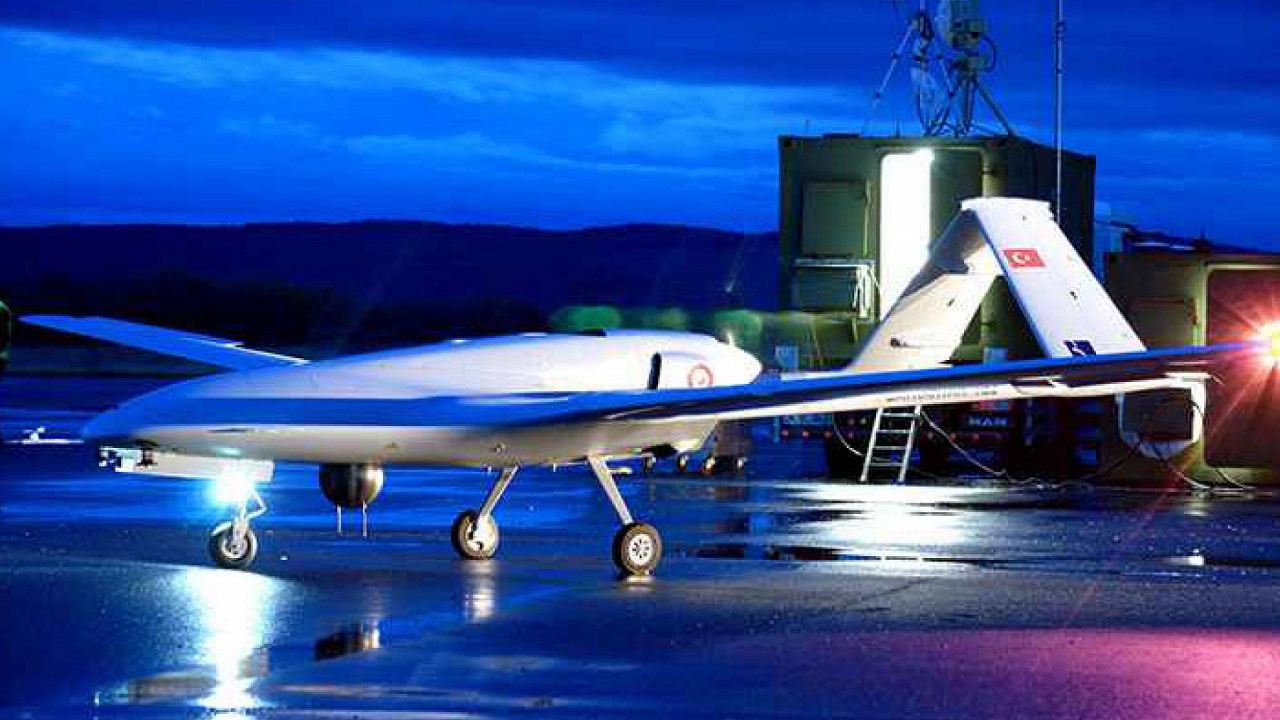The TB2 has made a lot of noise – so to speak – in the skies above Ukraine in recent months. There have been videos on social media as well as Ukraine’s armed force praising the drone made in Turkey. We asked an expert to explain why this UAV is so effective? The Turkish-made Bayraktar TB2 unmanned aerial vehicles have proven to be an effective and lethal asset to the Ukrainian army’s resistance amidst Russia’s ongoing invasion. Aiding Ukraine in its intelligence collection and attacks, the UAV truly represents the country’s defensive edge over the Russian invaders.
The TB2 also plays a massive role in another related sphere: Ukraine’s information role. Aerial videos depicting the drone targeting and taking out Russian assets have circulated all over social media, contributing to Kyiv’s propaganda efforts. While the TB2 is certainly playing an instrumental role in Ukraine’s defensive strategy, the drone’s cutting-edge technology proved its advanced capabilities before the war. The drone has carried out successful attacks in conflicts from the Caucasus to the Middle East and North Africa.
The TB2 in Use
The Turkish-based Baykar Makina company developed the TB2 drone in 2007, which made its first flight two years later. Adopted by the Turkish military in 2014, the drone easily gained prominence in counterinsurgency operations against the Kurdish Workers’ Party (PKK) and People’s Defense Units (YPG) militants in northern Iraq and Syria.
Since then, the drone has been exported to 13 countries and has seen action in various conflicts. The TB2 drones were also used in Libya and last year’s conflict in Nagorno-Karabakh between Armenia and Azerbaijan. Baku, Ankara’s ally, deployed these drones and displayed its successful attacks against Armenian assets in the capital city.
Powered by an internal combustion engine, the drone can travel with a maximum speed of over 220 kilometers. It can reach a maximum range of 300 kilometers and can carry up to 300 liters of fuel. Each drone is equipped with six aerial vehicle platforms, two remote video terminals, three ground data terminals, and ground support equipment. Its configuration enables its pilot, mission commander, and payload operator to control the drone. All of the TB2’s components, including its digital flight control system – take-off, landing, and cruise – are manufactured in Turkey.
Ukraine Uses the TB2 to Great Effect
Ukraine began acquiring the TB2 drone before the Russian invasion in 2019. After Russian President Vladimir Putin expressed discontent toward its Turkish ally for supplying its enemy with sophisticated drone technology, Ankara has tried to emphasize that its pre-war exports were driven by private companies only. Attempting to separate its official government from private enterprise in Ankara, Turkish Foreign Minister announced that “If a country has purchased a weapon from us or another country, then that weapon cannot be labeled as Turkish or Russian or Ukrainian.” Another Turkish official mirrored this rhetoric and added “These are private companies and these drone purchases had been done before the war as well.”
Regardless of the exact date when the TB2 drones entered Ukraine’s arsenal, the unmanned aerial vehicles have made an impact on Russia’s offensive position. As explained by British Defense Minister Ben Wallace, the Ukrainian resistance is able to deliver close air support and actually fire in depth through the TB2 drones, “which are delivering munitions onto their artillery and indeed their supply lines, which are incredibly important in order to slow down or block the Russian advance.”
While the TB2 had proven to be an effective tool in warfare previously, the Turkish drone helped alter the trajectory of the Russian-Ukrainian conflict.
Maya Carlin is a Middle East Defense Editor with 19FortyFive. She is also an analyst with the Center for Security Policy and a former Anna Sobol Levy Fellow at IDC Herzliya in Israel. She has by-lines in many publications, including The National Interest, Jerusalem Post, and Times of Israel.

